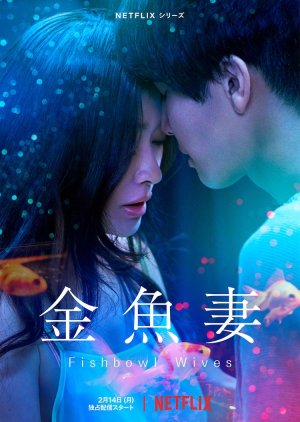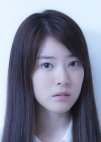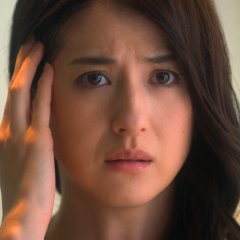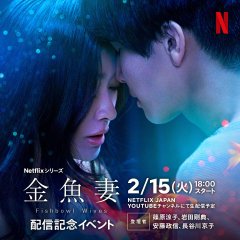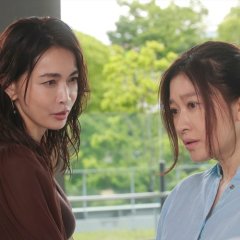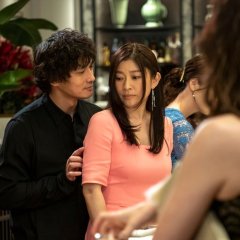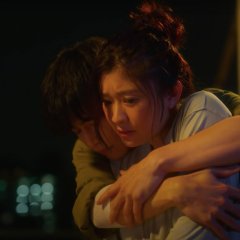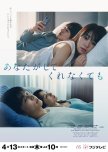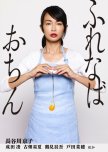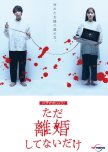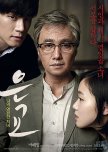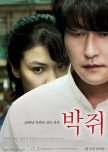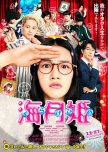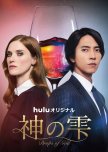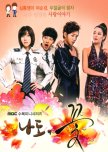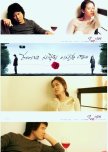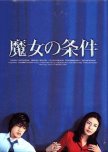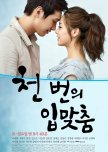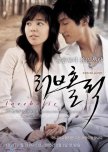Depois de sua festa de aniversário e do anúncio de uma nova filial do salão do marido, Sakura resolve comprar um peixe-dourado e rola um clima com o dono da loja. (Fonte: Netflix) Editar Tradução
- Português (Brasil)
- 中文(台灣)
- Arabic
- Українська
- Título original: 金魚妻
- Também conhecido como: Goldfish Wife , Mulher Peixinho Dourado , Kingyo Tsuma
- Roteirista: Tsubota Fumi
- Diretor: Matsuyama Hiroaki, Namiki Michiko
- Gêneros: Romance, Drama
Onde assistir Mulher Peixe Dourado
Subscription (sub)
Elenco e Créditos
- Shinohara RyokoHiraga SakuraPapel Principal
- Iwata TakanoriToyoda Haruto [Owner of "Toyoda Goldfish"]Papel Secundário
- Ando MasanobuHiraga Takuya [Sakura's husband]Papel Secundário
- Hasegawa KyokoHakozaki Yuriha [The renovation wife, room 1803]Papel Secundário
- Minemura RieMei [Fortune teller]Papel Secundário
- Minakami KyokaBando Masako [Haruto's ex-girlfriend / Lawyer]Papel Secundário
Resenhas

‘Fishbowl Wives’ ; A Worthwhile Watch, Or A Waste Of Precious Time?
‘ Kingyo Tsuma’ ( alternatively known as ‘ Fishbowl Wives’ or ‘ 金魚妻’) is adapted from the eponymous psychological work by Kurosawa R . A mature and a surprisingly dark insight at times into the world of marriage, affairs and domestic abuse, ‘ Kingyo Tsuma’ is an intriguing if somewhat unrelieved portrayal into the fishbowl-like environment of main female lead Sakura Hiraga ( Shinohara Ryoko).
Hiraga is seemingly living the dream. She’s married to affluent hair stylist Hiraga Takuya( Ando Masanobu), she lives in an opulent penthouse apartment and she is envied by almost everyone that she knows.However as the saying goes: the grass is always greener on the other side of the fence.
Unbeknownst to others, the seemingly perfect Sakura Hiraga is an abuse-victim. Attacked physically and verbally by her husband on a regular basis, Hiraga likens herself to a goldfish stuck in a fishbowl; trapped in an inescapable situation with no way out.
It is due to her fascination with goldfish that Hiraga ends up encountering Toyoda Haruto ( Iwata Takanori). Toyoda is a kindhearted and younger man who owns a pet shop. After becoming enamoured by Hiraga, the female lead begins to question whether Todoya could be the key for her escaping from her megalomaniacal husband.
Screenwriter Tsubota Fumi has numerous works accredited under her name. Previously having worked upon ‘ Will I Be Single Forever ?’ (2021), Ojisan wa Kawaii Mono ga Osuki’ (2020) and ‘ Colorful Love: Genderless Danshi ni Aisareteimasu’ (2021), Fumi has notably had previous experience with adapting or writing somewhat “ avant garde” or unconventional screenplays.
This isn’t to entirely critique Fumi’s screenplay or the leadership of directors Matsuyama Hiroaki ( ‘ Mystery To Iunakare’, ‘ Switched’, ‘ Nobunaga Concerto’ ) and Namiki Michiko ( ‘ Mirai Nikki’, ‘Soredemo, Ikite Yuku’, ‘ Ichikei no Karasu’). The series did an excellent job through the writing reigns of Fumi and Hiroaki and Michiko’s lens perspective of making viewers feel uncomfortable during key moments. The topics exploited onscreen particularly revolving around infidelity, debauchery and domestic abuse could often purposefully make the viewer feel almost voyeuristic.
In addition to this it was apparent that ‘ Fishbowl Wives’ offered some wry and witty attempts at comic relief- a droll comic exchange or setup evidently drawing attention away from tense or angst-ridden moments in the series. However where ‘ Fishbowl Wives’ could admittedly feel somewhat limited was through the direction of writing .
The performances given by the main cast are certainly solid, with Shinohara Ryoko and Iwata Takanori particularly stealing the spotlight during tense or tour de force moments.
On the other hand whilst both leading actors’ idiosyncratic performances were certainly good, the onscreen chemistry between Ryoko and Takanori was admittedly somewhat stunted and inconsistent in parts .
Perhaps this isn’t entirely the fault of the actors. Whilst there is supposed to be an awkward barrier between their onscreen characters due to their respected age gap, it was often hard for viewers to truly engage with this “ developing” relationship due to the characters rarely having a lot of personal drive. ( Particularly with Sakura Hiraga. Although the female lead does develop and does make some life-changing decisions, there were many elements surrounding her seeming “ disregarded” dreams, her first meeting with Takuya as well as trauma which were often widely disregarded and limited opportunities in order to flesh out her character.)
Naturally this also had a knock-on effect with the plot. One of the focal and major drives of ‘ Fishbowl Wives’ narrative came through Hiraga and Haruto trying to find happiness. Whilst we did see opportunities as viewers towards Haruto and Hiraga’s feelings for one another blossoming and the impact of their relationship upon plot, the somewhat lukewarm venture into the characters’ mutual growth and chemistry with one another did restrict dynamic engagement with the audience.
As for the progression of the narrative, ‘ Fishbowl Wives’ is truly a trial of patience. Even for an eight episode miniseries the plot could feel somewhat tedious in parts and slightly dragged out. Admittedly the series did attempt to offer some distributed screen time upon the subplots revolving around Hiraga’s acquaintances, but due to limited screen time, these storylines felt somewhat rushed and sporadically placed.
The delivered ending is admittedly dependent on viewers’ expectations; some possible enjoying the bittersweet note and imagery, whilst others feeling somewhat disappointed by the lack of a concise conclusion.
Under the directing reigns of Hiroaki and Michiko, ‘ Fishbowl Wives’ is notably an assortment of bright palette schemes, symbols and motifs. ( One of the most reoccurring motifs throughout the series evidently being the goldfish; an important plot device for the main characters, as well as a symbol of irony and foreshadowing). In addition to this the OST is notably subtle yet synchronic with key scenes; somewhat generic in parts, but helping to heighten certain scenes also.
‘ Fishbowl Wives’ offered viewers with aesthetically pleasing scenes and decent performances by the cast. However whilst the series did offer viewers with an intriguing plot premise, ‘ Fishbowl Wives’ slowly began to meet its cataclysmic downfall as the series progressed. The ending of the series will certainly differ for audiences dependent on expectations, but helped to reinforce the assertion that ‘ Fishbowl Wives’ struggled at times to escape its own bubble of writing limitations also.
Esta resenha foi útil para você?

Esta resenha pode conter spoilers
Housewives like a Golden Fish: being trapped and desperate to be loved
Let me be the first one to give my review to this drama since I've been anticipating this drama a lot.. I'm so excited to see Gun chan finally get a role in a mature drama.. also getting involved in an affair with older woman. I imagine this drama will be too hot to handle, and I guess they give us a super hot scene in episode 1 and episode 8. As the beginning of the secret affair, and in the end of their relationship.
My prediction is right. Gun chan is totally did well.. with his acting, also he looks very handsome, cute, sweet and warm through his role.
Warning! If you are under 18 years old, please do not watch.. because every episode, you'll see some sex scenes with different couple, and not every scene is sweet. It's infidelity everywhere!
Now about the main leads.
I think the most interesting story is about Sakura, Haruto and Takuya. Well.. no one is right since they're having affair.. but I can understand why Sakura get tempted by an angelic Haruto since she's finally getting courage to find her freedom after meet this sweet guy. Besides the couple name is Sakura (a spring flower) and Haru (means Spring) are totally completing each other.
The way this drama make a golden fish as an icon is totally relevant. It's successfuly describe all the house wives situation inside the fishbowl.. and they can't runaway without help. Each of them are desperate to be loved and cared.
I love how this drama can make me be more curious.. I finish watching 8 episode in 1 day.. it's totally worth it.
Get ready to be angry, upset, headache with Takuya as lowly husband.. I can't understand the way he love his wife by getting affair with many women.. like his neighboor, his subordinate, even his friend's wife. Like WTH is wrong with him. And how crazy he try to control his wife until did some domestic violence.
Luckily there is Haruto... a hero in the rainy day... he come at the right moment.. he is offering a warmest hug, sweet smile and extra care... No wonder Sakura fall into his embrace. Besides.. he is young, energetic and ikemen (handsome).. who can resist this temptation?? Lol.
The past story that makes Haruto is kinda obsess with Sakura after they meet again is a little bit make sense, but not that strong enough.. maybe I'm expecting a situation in the past that will be more dramatic and complicated... but this is just a mini series drama..so it's already good enough.
Now let's talk about the ending.
It's an open ending. But I guess there's some clue that showing the main leads (Sakura and Haruto) go back together...
In the last 5 minutes, they show us Haruto stop by in convenience store and grab 1 mineral water (probably for himself) and 1 highball beer (it's Sakura's favorite), and he rush back to his car like gotta leave somewhere. Meanwhile, Sakura is alone in the beach while smiling.. seems like she is waiting for someone.
I assume they're going to meet again after 2 years (as they ever made promise to watch the fireworks there together someday). At least this is the reality that I wish can be happen. Since I'm rooting for this couple so much.
Besides, Sakura finally divorce with her husband, and manage her own salon (reaching her dream). She finally can leave Takuya but still maintain a good relationship. I'm a bit panic for a moment that Sakura will choose Takuya.. Because if I were Sakura.. I will never forgive and get back to the crazy husband eventhough he get his lesson and be better at the end. Standing applause to the drama production because I almost believe that Sakura will choose Takuya over Haruto.. like seriously? But thankfully she still choose to seperate, and be brave to stand alone while chasing her own dream independently.
The ending shows a good ending for others couple too. If you are 18+, I strongly recommend this drama..and you'll love Haruto so much! He is kind and lovable!
Gun chan acting as Haruto is no joke.
Love the main lead couple so much. It's only 8 episodes.. s you can finish it in 1 day.
I will not talk too much about other couple since every couple has their own struggle, and it's quite satisfying result for some of them... and everyone is getting back with their own husband. It's kinda annoy me to see some "fetish" scenes and also how they describe every housewives are not satisfy with their own husband, so they're runaway to find another happiness through a secret affair. However it's totally make sense.. it's realistic.
I hope there will be an extra episode or special movie for Sakura and Haruto.. even just 15 minutes... I wish to see them reunite again and get married, also have kids. Probably Haruto can run his father business and maintain his store as well. He deserve to be rich! LOL.
P.S. I love the drama ost. The song is romantic and so wonderful!
Esta resenha foi útil para você?

